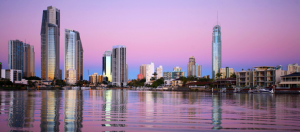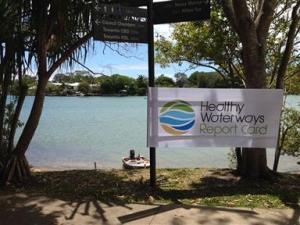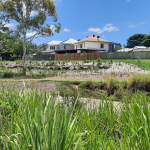Upcoming Events

Following the success of our inaugural 2015 Winter School, Stormwater Queensland is proud to be hosting our second Winter School, providing ongoing professional development opportunities for the industry.
This year’s Winter School will include a Full Day Technical Tour, showcasing several innovative ‘real world’ projects within Ipswich City. By popular demand, Grant Witheridge will also present an Advanced Erosion and Sediment Control Workshop.
This year’s Winter School will coincide with our Stormwater Queensland Awards for Excellence (held on Thursday, 7th at Dockside) to assist with industry professionals travelling from across the state.
This Winter School is targeted at staff from all areas of the stormwater industry including civil engineers, environmental engineers, hydrological and hydraulic engineers, urban designers, urban planners and local government officers.
To register for the Technical tour, Workshop or both, click on the below button, which will take you to the Online Registration Form.
WEEK AT A GLANCE
Tuesday, 5th July
Technical Tour of Ipswich – Includes a fish passage project, flood mitigation works , and multi-functional stormwater projects.
Presenters –Adam Berry, and Paul Smith Ipswich Council, Paul Dubowski, BMT WBM and David Sexton, Engeny
Wednesday, 6th July
Workshop – Advanced Erosion and Sediment Control Training
Presenter: Grant Witheridge, Catchments and Creeks Pty Ltd
Thursday, 7th July
2016 Stormwater Queensland Awards Presentation Luncheon
To find out more about the Stormwater Queensland Awards Presentation Luncheon, please click here
TECHNICAL TOUR – 5th July
The Technical Tour will be a fantastic opportunity to experience first-hand, a very broad range of catchment management projects and to hear about the challenges and solutions related to each project.This tour will also provide participants with the chance to learn directly from the practitioners involved in bringing the projects to fruition, with plenty of opportunities for questions, debate and discussion.Sites to be featured on this Technical Tour include:
- Redbank Plains Recreational Reserve Integrated Urban Stormwater Project: This recently constructed project includes a flood detention basin (providing 90 000m3 of flood storage) and stormwater harvesting wetland
- Berry’s Weir Fish Passage: Currently being constructed (with completion expected before the tour) to provide fish passage through this identified high priority barrier on the Bremer River.
- Jim Donald Parklands Multi-functional Stormwater Project: Currently being constructed (with completion expected before the tour), this project will comprise a multi-functional asset that provides flood mitigation, stormwater quality improvement, stormwater harvesting, new irrigated sports fields and open space integration within the surrounding area.
- Thagoona Flood Mitigation Works: Developed in response to devastating floods in 2008 and 2011 and subsequent detailed planning, works including a large earthen levee, drainage channel, culverts and an upgraded rail bridge to the south of the area.
ADVANCED EROSION AND SEDIMENT CONTROL WORKSHOP – 6th July
Presented by Grant Witheridge, this workshop will include two elements:
- Development of Erosion and Sediment Control Plans: Focusing on the preparation of ESC’s for various construction sites.
- Sizing Drainage and Sediment Control Measures: Discussing the hydraulic design (sizing) of various drainage and sediment control measures, including detailed discussion on sediment basin design.
The Workshop will include a workbook, practical work activities and catering for morning tea and lunch.
LOCATION AND TIMES
Tuesday, 5th July and Wednesday, 6th July 2016 (9.00 am – 5.00 pm)
The Landing at Dockside – 44 Ferry Street, Kangaroo Point, 4169
REGISTRATION FEES
|
If you would like to register for this event, please contact Lilly Barker on +61 2 9744 5252 or via email lbarker@gemspl.com.au
Stormwater Queensland are pleased to present the 2016 Awards for Excellence Presentation Luncheon.
The award categories for the 2016 Awards for Excellence are:
- Excellence in Strategic or Master Planning
- Excellence in Infrastructure
- Excellence in Asset Management
- Excellence in Research and Innovation
- Excellence in Policy or Education
- Excellence in Integrated Stormwater Design
If you would like to register for this event, please contact Lilly Barker on +61 2 9744 5252 or via email lbarker@gemspl.com.au.
National Awards for Excellence
Under the Awards for Excellence protocol adopted by Stormwater Australia, only the recipients of the State Awards for Excellence will be eligible for the National Excellence Awards. Preceding two years of State award winners (2015 and 2016) will be eligible for the National Awards in 2016. Therefore, entry of a project into a State Excellence Awards is a minimum prerequisite for participation in the National Awards.
The National Awards is held every two years. The next National Awards will be announced at the Stormwater National 2016 Conference in Brisbane, Queensland on Wednesday, 31st August, 2016.
Should you have any questions about the 2016 Stormwater Queensland Awards for Excellence, please contact Event Coordinator, Lilly Barker on +61 2 9744 5252 or via email to lbarker@gemspl.com.au.

Stormwater Australia invites you to attend STORMWATER 2016, the 4th National Conference convened by Stormwater Australia, to be held from Monday, 29th August to Friday, 2nd September, 2016 in Surfers Paradise, Queensland.
In 2009, the United Nations reported that more than half the world’s population lived in urban centres. This proportion is set to increase to 66% by 2050, when it is estimated that city dwellers will live and share their neighbourhoods with an additional 2.5 billion people.
As our cities grow and evolve, it is imperative that we manage our resource and our natural resources to ensure they continue to provide clean, healthy environments for ourselves and the next generation. Access to adequate supplies of safe and fit-for-purpose water will be increasingly important to meet the needs of a growing population, while the responsible management of runoff from both increasing sprawl and density in existing urban areas will be needed to increase our resilience to natural disasters such as flood and heat waves, and to avoid further environmental and social degradation.
The modern stormwater industry seeks to balance traditional issues with emerging priorities which are being placed on our infrastructure. Practitioners are experienced in working at the coal face, often pragmatically dealing with issues in a complex environment where policy requirements are often unclear, but the demand for good outcomes and multiple benefits are not. The growing need to work in multidisciplinary teams, to lead and influence, to understand and assimilate different points of view and technical requirements, will be core skills required in the future.
Challenge and change brings opportunity. Fiscal constraints are an ever present reality. New and emerging technologies are developed to provide technical solutions. Increasingly we are seeing new business models that empower greater choice. Increasingly we are looking to solve nexus issues around water, energy and food. In an increasingly connected world, information has a new currency to support decision making and engagement with community. As economies around the world transition to make better use of all this knowledge, there is potential to develop new markets and trade opportunities.
The ‘Rising to the Challenge’ Conference will reach out beyond our core industry practitioners to engage with a broader group of committed and talented people who will all need to work together to develop the solutions of the future. Stormwater Australia invites you and your colleagues from all disciplines and experiences to participate in what we anticipate to be an exciting and engaging Conference that builds upon earlier successes, inspires participants and provide opportunities for collaboration and knowledge sharing.
For all enquiries and registrations please visit – www.stormwater2016.com.au

The Report Card provides an annual assessment of the pressures facing our waterways, their current environmental condition (A-F grade), and the level of social and economic benefit the waterways provide to local communities (1-5 star rating).
As their organisation transitions into the new entity Healthy Waterways and Catchments, they have leveraged the combined skills and resources of Healthy Waterways and SEQ Catchments to further build upon their holistic monitoring and reporting approach. This includes working with the Council of Mayors to assess the risks to environmental values in each sub catchment. A component of this assessment will be released through the 2016 Report Card, identifying the sub catchments in most need of action to reduce sediment pollution.
To release the results, four launch events will be held simultaneously across South East Queensland.
Central Launch
Host: Healthy Waterways and Catchments
Venue: Riverlife Centre – Naval Stores, Lower River Terrace, Kangaroo Point, Brisbane
Northern Launch
Host: Unitywater
Venue: Mooloolaba Yacht Club, 33-45 Parkyn Parade, Mooloolaba QLD 4557
Western Launch
Host: Somerset Regional Council
Venue: Kilcoy Information Centre, 41 Hope St, next to Yowie Park, Kilcoy, QLD 4515
Southern Launch
Host: Scenic Rim Regional Council
Venue: Tamborine Rainforest Skywalk, 333 Geissmann Dr, Mt Tamborine QLD 4272
For more information and/or to register your attendance, head over to http://healthywaterways.org/eventscalendar . You don’t want to miss this one!

River Basin Management Society invite you to attend:
A Discussion on the 2016 Healthy Waterways and Catchments Report Card
“Please join us for a conversation with Dr Emily Saeck, Senior Scientist with Health Waterways and Catchments, to discuss the results of the 2016 Report Card. The Report Card provides an annual assessment of the pressures facing our waterways, their current environmental condition (A-F grade), and the level of social and economic benefit the waterways provide to local communities (1-5 star rating). This is the second year of the newly evolved Report Card, which provides a deeper understanding of the current pressures, benefits we receive, and importantly what needs to be done to protect and improve our waterways.
Please visit the Healthy Waterways and Catchments website to view the Report Card results after the launch on 16 November: http://healthywaterways.org/report-card”
To Register your attendance – click here

The SQ Management Committee invites all members, and potential members, to attend the 2016 End of Year Celebration event. The event is an opportunity for members to provide feedback and ideas to the committee on 2017 event topics/speakers and new initiatives, and to express your interest in participating in a sub-committee next year.
The program for the evening will also include a short presentation from Mike Smith about “When Government Says “No” at Christmas”. Mike Smith is a National Director of Stormwater Australia, and the founder of Ethical Consulting Services, a consultancy all about communications – lobbying, government relations, campaigning, marketing and governance. He is a member of the Australian Institute of Company Directors, and has been a Company Secretary, and Chief Executive. He’s worked at UQ as a lecturer/course coordinator on government policy-making; he’s also lectured on government relations, governance, board effectiveness, elections and campaigning, as well as developing and delivering customised training courses for business, community organisations, university students, and to professional conferences. His main recreational interest is elections, and he’s been a volunteer in five US Presidential campaigns, as well as managing and mentoring many Australian campaigns and candidates.
If you are able to join us on the 13th, please RSVP via return email by COB 6 December 2016 so as we know numbers for catering.
The Management Committee looks forward to meeting many members for an enjoyable evening.
Brad Dalrymple
President
Stormwater Queensland
Sponsored by;

Time: 8.30am for a 9.00am start and finishing with lunch from 12.30pm
The commencement of the new Planning Act in mid-2017 has been a driver for the Department of Infrastructure, Local Government & Planning (DILGP) to review how State interests are expressed in the planning system. In November 2016, DILGP released consultation drafts of theState Planning Policy (SPP), the State Development Assessment Provisions and the Planning Regulation. These drafts can be downloaded from this website. The draft SPP includes some important changes to the State interest – water quality.
The changes associated with the policy are likely to have some noteworthy implications for urban development, communities and the environment.
Stormwater Queensland is hosting a forum to assist in understanding how the Draft SPP proposes to change regulatory requirements for stormwater quality management.
The event is recommended for those involved in urban stormwater planning, policy or development. Submissions on the draft SPP close 10 February 2017 so the Forum is also recommended for any person or organisation considering making a submission on the water quality aspects of the policy.
An expert panel from a broad cross section of the industry has been convened for this event to provide different perspectives on the policy. The panel will include a range of speakers including:

Sponsored by;
Time: 8.30am for a 9.00am start (concluding with lunch from 12.30pm)
As part of any development approval, local governments request developers to meet stringent stormwater quality requirements before allowing stormwater to discharge to local receiving waterways or adjoining public stormwater infrastructure. For over a decade now, these requirements have been met by use of various types of proprietary and non-proprietary stormwater treatment devices or systems, including Gross Pollutant Traps, Oil and Silt Arresters, Sediment Fore-Bays, Trash Racks, Litter Baskets, Sediment Ponds, Swales and Bio-Retention Systems, etc. All of these systems need maintenance in order to consistently meet the quality requirements of their design. When reflecting on our efforts in stormwater quality improvement over the last decade, a number of important questions arise, including:
- Are these systems, both public and privately owned, being maintained according to manufacturer specifications and/or design guidelines?
- Who is responsible for maintaining these systems? How is local government responsible for publicly owned assets? What obligations do private asset owners have to maintain these assets?
- What regulatory or incentive frameworks are currently in place to ensure these assets are maintained? What regulatory or incentive frameworks could be considered in the future?
- How does local government keep a track of these assets? Do they know where they are located? How much data or information do they have?
- How do they use this data or information? How do they store it? Who is responsible for it?
- To what extent are systems owned by private entities, other than local governments, being maintained?
Stormwater Queensland is hosting a forum to assist in understanding the management situation for public and privately owned systems and to find answers to the above. The event is recommended for those involved in urban stormwater planning, policy or development, asset management and maintenance. An expert panel from a broad cross section of the industry is being convened for this event to provide different perspectives on this topic.
An expert panel from a broad cross section of the industry has been convened for this event to provide different perspectives on this topic including;
- Claire McAsh – Senior Environmental Engineer, City of Gold Coast
- Russell Cadman – WSUD Compliance Officer, Blacktown City Council, NSW
- Aaron Marmara – Operations Supervisor, Cleanaway
- Mark Bibby – General Manager, Regen Australia
- Jack Mullaly – Crazed Founder, Ideanthro
There are some fantastic examples from the UK and other parts of the world that use a naturalistic approach to floodplain management. The question is, however, can these types of techniques be practically applied in SEQ? Given that the local climate and other components are vastly different to these areas, will these approaches be feasible and if so to what degree and how would they be best used?
Recent discussions within some organisations have pinned hopes on naturalistic floodplain management as “the answer” to several common issues, which makes it well worth considering. However, there are unresolved issues regarding the importance of revegetation weighed against the potential for increased flood levels upstream (and potential decreased flood levels downstream) also the quantification measurement and modelling of such approaches, climate, storage, practicality as well as the cost of implementation.
Key items that will be discussed include:
- Applying Natural Floodplain Management Techniques in Queensland. What is the likelihood for success?
- Lessons learned from the UK on Natural Floodplain Management. Application of natural techniques should as floodplain reengagement, revegetation, infiltration and temporary storage through leaky weirs etc.
- Discussion surrounding the future Bremer River Catchment Study and the opportunities for integrated water approaches
- Application of revegetation etc in Bremer/Lockyer systems and possible implications for the regional area.
- The power of using flood mitigation as a mechanism to get other benefits (water quality, bank stabilisation, more trees in the ground)
- Hurdles such as property resumptions, increasing flooding upstream whilst benefiting downstream property, lack of legislation power to enable greater community good and working with landowners on useable land.
- Previous case studies and a quick look at what Ipswich is looking at for a natural floodplain management pilot project
Stormwater Queensland is hosting a lunchtime presentation to facilitate a transfer of ideas and assist in understanding a natural floodplain management approach.
Phil Smith (Waterways Health Officer) and Adam Berry (Floodplain Management Engineer) from Ipswich City Council will be co-presenting and will provide time at the end for discussion/questions and answers.
Winter School
sponsored by;
Date: 9, 10 and 11 August 2017
Time: 8.30am – 5.00pm each day
Venue: GHD, Level 8, 145 Ann Street, Brisbane
Price: $450 (p/workshop, p/day) SQ members; $550 (p/workshop, p/day) non-members
Space is Limited! Register today
Every year, Stormwater Queensland is proud to hold its annual “Winter School”. What is Winter School you might ask? Well, for those of you who have attended previously, the Winter School is a fantastic chance for all to brush-up on their stormwater management skills and possibly learn a thing or two, including updates on new or revised industry methods and applications. You get to learn one-on-one with industry experts and network with others in various stormwater management disciplines at the same time.
This year we are holding three full-days of workshops. These workshops are:
● DAY 1 – HEC-RAS 2D
This one day workshop is designed for those looking to make their first step into the 2D modeling world, along with seasoned professionals looking for a refresh on up to date modern techniques.
Key aspects covered by the course:
- Introduction to HecRas
- Key input parameters for 2D modeling
- Modeling of real life case studies
This course will be run by Krey Price. Krey is a civil engineer and project manager with international experience in water resources. He is engaged with computational modeling, engineering design, and project management for flood mitigation, mine rehabilitation, river and wetland restoration, Stormwater management and catchment assessment projects.
● DAY 2 – ARR Workshop – Neil Collins and Martin Giles
This one day workshop is set to cover off on one of the biggest changes to the Stormwater Industry in 30 years – ARR 2016.
Key points that will be covered in this one day workshop.
Overview of ARR16
- Key changes 87 vs. 16
- How to put together a Stormwater design or flood study using ARR16 (key emphasis on the new temporal patterns and ensemble storms)
- Key focus on Chapter 9: Urban Development
This course will be run by Martin Giles. Martin has 28 years’ experience, specializing in hydraulic and environmental investigations. Modeling work undertaken by Martin has included complex floodplain systems and the application of dynamic modeling to urban Stormwater design.
● DAY 3 – Stream Management – Misko Ivezich
This one day workshop will take you down the journey of stream management (fluvial geomorphology). This course will give designers the information and experience required to make informed design decisions that will result in a positive environmental outcome
The key concepts covered by this course:
- Fundamentals of Fluvial Geomorphology (including case studies)
- Fundamentals on waterway management
- Real life case study discussion
This course will be run by Misko Ivezich. Misko is an environmental engineer with core interests and skills in the complex interactions between hydrology, hydraulics and fluvial geomorphology. Misko has strong geomorphic field assessment skills having inspected hundreds of waterways across eastern Australia.
Thanks to our host and sponsor we have been able to reduce the cost so to ensure you receive a valuable and rewarding participation.
Costs per workshop, per day are:
● $450 SQ Members (inc GST)
● $550 Non-Members (inc GST)
Discounts Apply
Book 2 days – $50 off first day
Book 3 days – $100 off first day







